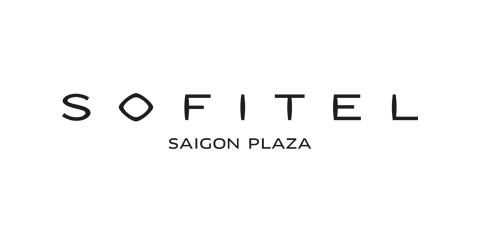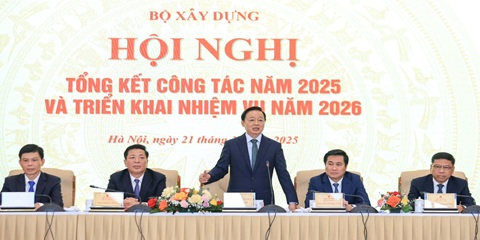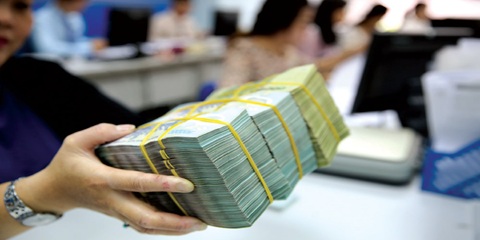Want to be in the loop?
subscribe to
our notification
Business News
TAX ADMINISTRATION LAW REVISION TO FURTHER FACILITATE TAXPAYERS
The draft Law on Tax Administration (amended) adds a lot of new regulations to meet tax reform requirements to further help taxpayers. Mr Cao Anh Tuan, Deputy General Director of the General Department of Taxation, said, the draft law increases rights and facilitations for taxpayers. Specifically, taxpayers will know the time limit for tax refund, the value of unrefunded tax and legal reasons for unrefunded tax.
In addition, the bill adds provisions on time limit for submission of tax documents, electronic tax payment records in case of technical faults; time limit for submission of lumpsum tax declaration records; time limit for filling missing records; deadline for paying tax and delayed payment of additional tax to ensure uniformity, clarity and transparency between taxpayers and tax authorities.
Amending regulations on time limit for finalisation of personal income tax is one of remarkable changes of this bill, he said. The current rule provides that an individual with two or more sources of income must directly settle final tax payment with tax offices. If he has paid less than he has to, he must fill it up or if he has paid more than the amount he needs to, he can request for a refund.
“In order to assist taxpayers in integrating annual incomes before making final tax settlement and mitigating risks, the draft law revises the tax settlement period for individuals to 120 days from the last date of calendar year, one month more than the duration fixed for enterprises,” Tuan said.
More sanctions for e-commerce tax management
Although there are regulations on electronic invoices, this option is not compulsory on a large scale. Businesses are still allowed to use multiple forms of invoices and most are opting for paper invoices and just a handful choose electronic invoices.
As a result, the revised Law on Tax Administration also supplements regulations on electronic invoices and electronic records because current rules on printing, issuance and use of invoices are basically built for the application paper invoice management.
“The application of electronic invoices, especially officially authenticated electronic invoices in recent time, shows that the application of electronic invoices reduces the time of handling administrative procedures for businesses and tax authorities; reducing costs for businesses; preventing invoice counterfeiting and fraudulence, and cutting the cost for the whole society,” Tuan stressed.
Furthermore, to promote electronic transactions, the draft law increases regulations on tax administration for e-commerce. In view of that, tax authorities will build databases and widely deploy electronic tax services such as electronic tax declaration, electronic invoicing and online tax payment; supplement regulations on responsibility of ministries, branches and units for e-business activity of organisations and individuals with tax offices.
Tax exemption for households and individuals with VND50,000 of tax
Apart from 10 rights of taxpayers stipulated in the current Law on Tax Administration, the draft amends and adds two rights of taxpayers: (1) Taxpayers are entitled to know the time of settling tax refund, the amount of unrefunded tax, and the legal reason for unrefunded tax; and (2) taxpayers are not subject to penalty for tax violations or late tax payment in case of following the order of tax authorities. On tax payment responsibility, the bill replaces regulations on deadline for payment of quarterly corporate income tax to at most 30 days from the first day of the subsequent quarter and adds provisions on tax payment applicable to crude oil and natural gas. For cases where taxpayers pay late as a result of natural calamities, fires, epidemics, serious diseases, unexpected accidents, or other force majeure events, they may request for late payment.
The draft also amends tax exemptions for households and individuals subject to agricultural land use tax and individuals directly paying salary-based personal income tax with an annual tax of VND50,000 or less.
Source: VCCI
Related News

A STELLAR CHRISTMAS AT SOFITEL SAIGON PLAZA
Experience the magic of year-end celebrations in five-star luxury, where Parisian elegance meets Saigon’s festive vibrancy. Discover your Stellar Christmas moments: https://sofitel-saigon-plaza.com/festive-offer-2025

CONSTRUCTION SECTOR POSTS OVER 9% GROWTH IN 2025
Industries under the ministry’s management accounted for an estimated 17.23% of national gross domestic product (GDP), up about 0.17 percentage point from 2024. They contributed around 1.96 percentage points to overall GDP growth, reported the Vietnam News Agency. The contribution helped push Vietnam’s economic growth to above 8% in 2025 and supports the Government’s aim of pursuing double-digit growth in the coming years.

VIETNAM PUTS PUBLIC INVESTMENT DISBURSEMENTS AT VND603.6 TRILLION
Vietnam’s public investment disbursements had amounted to VND603.6 trillion in the year to December 18, equivalent to 66.1% of the plan assigned by the prime minister. According to the Ministry of Finance, actual disbursements by December 11 had totaled VND577.7 trillion, or 63.3% of the prime minister-approved plan of VND913.2 trillion, the Vietnam News Agency reported.

SHINE INTO 2026 AT HOIANA RESORT & GOLF!
This New Year’s Eve, celebrate where the sea meets the sky. Vibrant performances, festive dining, DJ beats, live bands and dazzling fireworks come together for one unforgettable night. From beachfront countdown moments to curated New Year’s Eve dinners across Hoiana, every detail is designed to welcome 2026 in style.

VIETNAM’S TRADE SET TO SURPASS US$900 BILLION FOR FIRST TIME
Vietnam’s total import-export turnover is expected to reach about US$920 billion by the end of the year, marking the first time the country’s trade value has exceeded the US$900-billion mark. As of December 15, Vietnam’s total trade turnover stood at US$883.7 billion, according to the Agency of Foreign Trade under the Ministry of Industry and Trade.

GLOBAL SOURCING FAIR VIETNAM 2026 – THE TRULY GLOBAL B2B SOURCING SHOW IN VIETNAM TO EXPAND & DIVERSIFY YOUR EXPORT MARKETS WORLDWIDE
The 4th edition of Global Sourcing Fair Vietnam returns in 2026 with an impressive scale, featuring 700 booths showcasing Fashion & Accessories, Home & Gifts, and the newly introduced Printing & Packaging Products from 500+ verified suppliers across Vietnam and Asia – including Mainland China, Taiwan, Hong Kong SAR, South Korea, India, Bangladesh, ASEAN, and more.
























